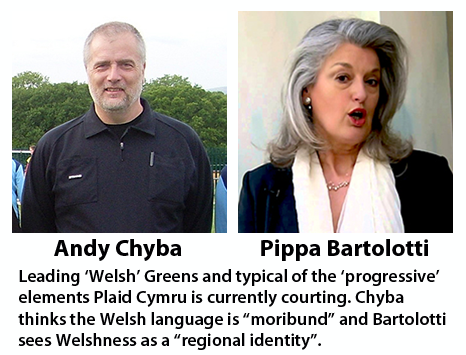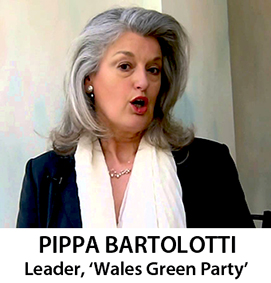Many people will hate me for saying this, but political parties of the Right are invariably more honest, and therefore more ‘comfortable’, with their supporters than parties of the Left. The reason for this is that they appeal to perfectly natural human sentiments such as patriotism, family, Mom’s apple pie, or even baser impulses such as prejudice and greed. Whereas parties of the Left pretend – even delude themselves – that their voters are motivated solely by the desire for a nicer, fairer world, where the sun shines all day and we’re all nice to each other, when the truth is that those who vote for them are motivated by the same self-interest as the most venal, cigar-smoking capitalist.
Or am I exaggerating? Well, consider this: Throughout history there has been opposition to organised religion, monarchy, the military, landowners, the aristocracy, industrialists, the bourgeoise, etc., not because of any deep moral or philosophical objections but simply because malcontents believed such institutions and groups disadvantaged them. What I suppose could be described as a combination of envy and greed, which some would argue is the true basis of socialism.
Occasionally this resentment flared up in events such as England’s Peasants’ Revolt of 1381 which, despite the best efforts of historians in subsequent centuries to portray it as such, was not a mass movement with a coherent ideology and long term plans for a better society . . . it was simply a spontaneous rising of people motivated by anger and envy. In subsequent centuries, such episodes of unrest played into the hands of radical groups and political parties using these waves of popular discontent for their own ends. France would certainly have seen disturbances towards the end of the eighteenth century, but these would not have amounted to the French Revolution had there not been clever and ruthless men on hand to exploit the public mood and reshape France.
In the following century Russia knew her movements for liberalisation, all of which failed. Some were glorious failures, none more so than that of the young officers who made up the Decembrists. Others were almost farcical. I particularly enjoyed reading many years ago of the Narodniki of the 1860s and ’70s and their ‘Going to the People’, which meant moving to the countryside in order to educate the peasants and help them in their struggles against the kulaks and other oppressors. The conservative peasants were so terrified by these young idealists that they couldn’t hand them in to the tsarist authorities quick enough.
The problem in nineteenth-century Russia and elsewhere was that the radical intellectuals of the aristocracy and the middle-class might eulogise and idealise the peasants and the workers but they had absolutely nothing in common with them, which usually resulted in suspicion and hostility from those they were trying to help. Little changed when Lenin and his gang came to power. There was a massive disconnect between the underdogs and those who saw it as their mission to help make the world a better place, either for, or at least in the name of, said underdogs.
By comparison, those defending privilege and the established order almost always belonged to the class whose interests they defended. More than that, they also appealed to the aspirational, those with a foot or two on the ladder. And never forget that those who defended the status quo also had an audience among the poor, perhaps those of a religious bent, or others who saw the rabble-rousers as harbingers of chaos.
Within my lifetime, in the USA, I can recall the Democrats cobbling together ‘rainbow alliances’ of disparate groups that had nothing in common other than not being Republican, while, on the other hand, the GOP represented an almost homogenous interest of the prosperous, the relatively satisfied, the patriotic, the religious and others who were reasonably happy with America the way it was. Both may have involved a degree of consensus but one didn’t need to be a great psephologist to predict which was the more likely to fall apart.
*
This gulf between the underprivileged and those who sought to speak for them has, at its best, been a kind of distant paternalism; at its worst, it has resulted in oppressive systems operated by fanatics in the name of those they very often despised. This has something to do with the fact that radical and anti-establishment parties can never entirely trust their constituencies. External enemies threatening war, or a rise in their living standards, could send the ‘oppressed masses’ flocking to the opposition. By comparison, the Right has always been able to trust its supporters.
Which meant that while the Right represented a coherent ideological continuum, from the richest in the land to the poorest patriot or the widow crossing herself before a picture of the tsar, the self-appointed saviours of the downtrodden always struggled to find common ground with those they spoke for. As the Narodniki and others found this can be very frustrating, t o the point where educated and motivated radicals look at those they’re trying to help, and ask, ‘Is it worth it?’ . . . before pulling themselves together and remembering that these drunken, slobbering, superstitious oaves are their hope of power.
o the point where educated and motivated radicals look at those they’re trying to help, and ask, ‘Is it worth it?’ . . . before pulling themselves together and remembering that these drunken, slobbering, superstitious oaves are their hope of power.
This gulf was almost unbridgeable in tsarist Russia, and it’s still there in today’s Western democracies. With a small number of exceptions the modern UK Labour Party is made up of middle-class people and professional politicians, that is, those who studied politics in university then went on to become political assistants – perhaps doubling up as councillors – before making the logical step up to becoming an MP. How do these really feel about beer-swilling, Sun-reading, Reality-TV-obsessed Labour supporters who think Jim Davidson is a great comedian? The truth is that many Labour politicians would sympathise with the Narodniki who came to loathe the peasants who handed them in to the police.
But ‘Ah!’, you say, ‘what about those Old Etonians running the UK government, aren’t they out of touch?’. Out of touch with whom? Certainly not with their friends and relatives in the City, nor with the great English middle class, nor with those lower down the pecking order who feel it’s perfectly natural to be ruled by toffs. Consequently there is no great disconnect between Cameron, Osborne et al and those who support them.
Yet this disconnect on the Left goes a long way to explaining Labour’s fear and loathing for Ukip, and Nigel Farage in particular. The rise of Ukip has exposed another fundamental truth I touched on earlier – many people vote Labour out of pure self-interest, believing that Labour in government will raise wages and benefits, lower taxes and do all manner of things to benefit them. Altruism and a better world have nothing to do with it. As I said in a recent post. ” . . . your average working class, Labour-voting, tabloid-reader is very often a conservative and even a racist. Not a violent, Hitler-worshipping nutter, but a person who undemonstratively shares almost all the prejudices of the far Right. The identikit Ukip voter (as the May Euro-elections showed). We all know them. We work with them, we talk with them down the pub.”
What Labour – and socialists in general – will not admit is that Ukip has out-bogeymanned them. Whereas Labour has traditionally scapegoated capitalism, the banks, international finance, etc., Ukip has come along and said ‘No, no, the real problem, the reason you’re having a hard time, is “Europe” and immigrants’. What makes it worse for Labour is that during the Blair – Brown ( – Mandelson) years Labour got as close to big business and international finance as the Tories, so the traditional bogeymen can no longer be attacked.
*
Due to the reckless behaviour of these traditional but now inviolate bogeymen the Western world has just gone through – or may still be experiencing – the worst Recession since the Wall Street Crash of 1929, the UK has a national debt of 1.4 trillion pounds, the Chancellor’s autumn statement last week will lead to public service cuts on a ‘colossal scale‘. . . so where are the massive protest marches behind the banners of socialism? One answer lies in the preceding paragraph. In addition to believing in Ukip’s ‘bogeymen’ we alse see an illustration of what I said in my opening paragraph: “parties of the Right pander to perfectly natural human sentiments such as prejudice and greed”, and gain the rewards.
What of Wales? Surely here, in this fastness of fraternity, this citadel of comradeship, this bastion of brotherhood, this . . . (ah, bugger it!). Surely here socialism still courses through the veins of our people, the Internationale still rings out at the end of ballet performances in the local Institute? Well . . . no. The truth is that in the most recent elections in May Ukip, with 27.6% of the vote, came damn close to beating Labour, on 28.1%. But of course Labour isn’t the only socialist party in Wales, we also have Plaid Cymru (15.3%), which is probably more socialist than Labour, and still moving Left. I don’t wish to be too cruel, but from where I’m sitting, becoming more ardently socialist in 2014 is the political equivalent of buying Confederate Bonds in 1865, or seeking a title in 1788 France.
Having turned its back on the Welsh people and given up almost all hope of success Plaid Cymru is now desperately looking for allies among other ‘progressive’ elements’. (Don’t you just love the labels these Lefties attach to themselves!) This of course is in addition to its long-standing policy of not jeopardising any future coaltion by being too hard on Labour. The ones being courted most assiduously, and unwisely, at the moment are the Greens.
This I have dealt with in a number of recent posts, Plaid Cymru and the Green Party of Englandandwales and More on the Green Party of Englandandwales. From reading assorted blogs and other sources I have picked up on references to a proposed eco-socialist alliance which seems to be welcomed by Plaid Cymru luminaries going out of their way to assure English Greens in Wales that Plaid has nothing to do with nationalism (scroll down to comments). Which must raise the question: What is Plaid Cymru for if not for defending and representing Welsh nationhood, this being my understanding of nationalism? I can see why such an anti-colonialist stance might offend those of a colon disposition, but not why Plaid Cymu candidates should have to pander to such susceptibilities.
I have asked it before and I make no apology for asking it again “How can a Welsh political party be in existence for ninety years without realising that its greatest – perhaps its only – selling point is its Welshness? Blame England! – play on Welsh grievances! – stir the passi ons! – reap the rewards! Better to do that and fail than be a bunch of mealy-mouthed compromisers satisfied with crumbs.”
ons! – reap the rewards! Better to do that and fail than be a bunch of mealy-mouthed compromisers satisfied with crumbs.”
But, no, Plaid Cymru has refused to be a truly Welsh party for fear of alienating those ‘progressive elements’ with which it is so keen to form alliances. People like Pippa Bartolotti of the Green Party of Englandandwales who regards Welshness as a “regional identity”, she of the checquered past and the recent anti-Nato fiasco in Newport. Or maybe the spotlight will fall on Andy Chyba, who believes the Welsh language is “moribund”. The more one looks at some of these people Plaid Cymru wants to get into bed with the more one can see that they may indeed be progressive in their attitudes to logging in the Amazon and similar issues, but when it comes to Wales and Welshness their attitudes are most definitely nineteenth century and Rule Britannia.
As things stand, Plaid Cymru is of more use to the British system than it is to the Welsh people. All it does is fill the space that should be taken up by a nationalist party. Plaid Cymru mistakes being ignored (due to its impotence) as evidence of its ‘respectability’ (of paramount importance to a certain Welsh mind-set). Plaid Cymru’s taken-for-granted heartlands are being lost due to the colonisation Plaid Cymru is afraid to speak out about; the party has never connected with the anglophone Welsh; yet now it believes it can increase its appeal by linking up with colonialist-minded Greens and other oddballs! This goes beyond wishful thinking, this is self-deluding bollocks.
I hope that Plaid Cymru and its ‘progressive’ allies fail to get a single MP next year and suffer badly in the Assembly elections of 2016 because that’s what they deserve. More importantly, it’s what Wales deserves. Plaid Cymru today is little more than a ‘zombie’ party; not quite dead, but incapable of making any meaningful contribution to the life of Wales. Only when it becomes obvious to everyone that Plaid Cymru is finally dead can Wales start making any real progress.







